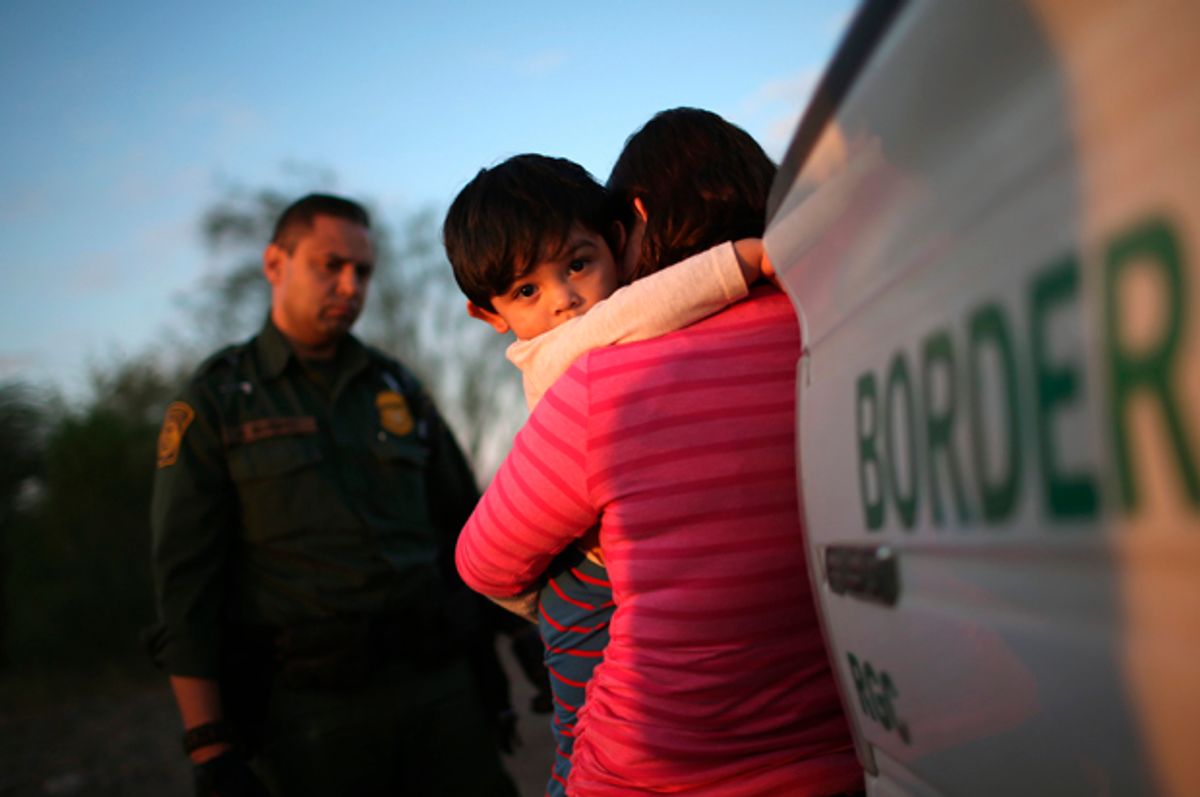Last month, President Donald Trump promised to bring the "full force and weight" of his government against the "epidemic" of human trafficking. While not much has subsequently happened from a policymaking standpoint, Trump's strident anti-immigrant rhetoric may be targeting victims of these horrible crimes.
According to Professor Annalisa Enrile, of the University of Southern California's School of Social Work and an expert in sex trafficking as well as labor exploitation of immigrants, traffickers — many of whom are in this country without documents — may be the ones who are being targeted.
"President Trump’s immigration policies have created a lot of fear in the community, especially for those who are undocumented, but also for those immigrants who are here legally and want to work for a better life for themselves," Enrile told Salon. "All of this chaos incites feelings of divisiveness, of 'us' and 'them.' When you can 'other' whole groups of people, treating them 'less than' becomes easier. Once we start categorizing people and places and jobs and statuses, we turn them into 'things and objects.' If we lose empathy for the humanity of others, that’s how they get sold and bought."
Policies aimed at immigrants and migrants are so harmful, Enrile noted. "A culture of fear will make it difficult for people to escape conditions of trafficking and slavery. It reinstitutes cultures of silence and stigma that we have worked so hard for decades to break through. It’s true when they say that trafficking and modern-day slavery happen right in front of our eyes. Imagine how the rise of intolerance, injustice, and racism espoused in Trump’s policies will further harm rather than help the lives of victims and survivors of trafficking."
She added, "We know, through experience and years working to end human trafficking and modern-day slavery that the solution cannot be based on enforcement and strong-arm strategies. We must begin with transparency, collaboration, and a true paradigm of human rights. We have to give people options and bridges to better lives; not construct walls, bans, and other backwards actions. We have to move onward — it’s the only way to genuine freedom."
She also had advice for people who want to help address the problem of human trafficking — namely, to recognize that solutions don't come from "a tweet, a sound bite or snap." The solution starts with "understanding" and continues with learning how to "just jump in and get involved in areas they are interested in: volunteer with an organization or a group, make a donation. Trafficking is so layered that they don’t even have to focus on solely anti-trafficking organizations. Organizations that help girls, that safeguard communities, that encourage immigrant empowerment, equitable economies, all of these are places where we help stem the incidence of trafficking."
Enrile added that people can also "get involved by what I and my colleagues call, 'creating and living in brave spaces.' Now, more than ever, it’s time for those of us who believe that people are not for sale to be brave and speak out against injustice and inhumanity. We can’t wait for ideal circumstances, especially as policies become more narrow and conservative; especially in a time where racist 'us against them' mentalities are becoming prevalent. We have to make a choice to be brave, stand up for what we know is right, and tell the stories of all of those who have been pushed into the darkness, who are invisible, and who are being trafficked right in front of our eyes."

Shares